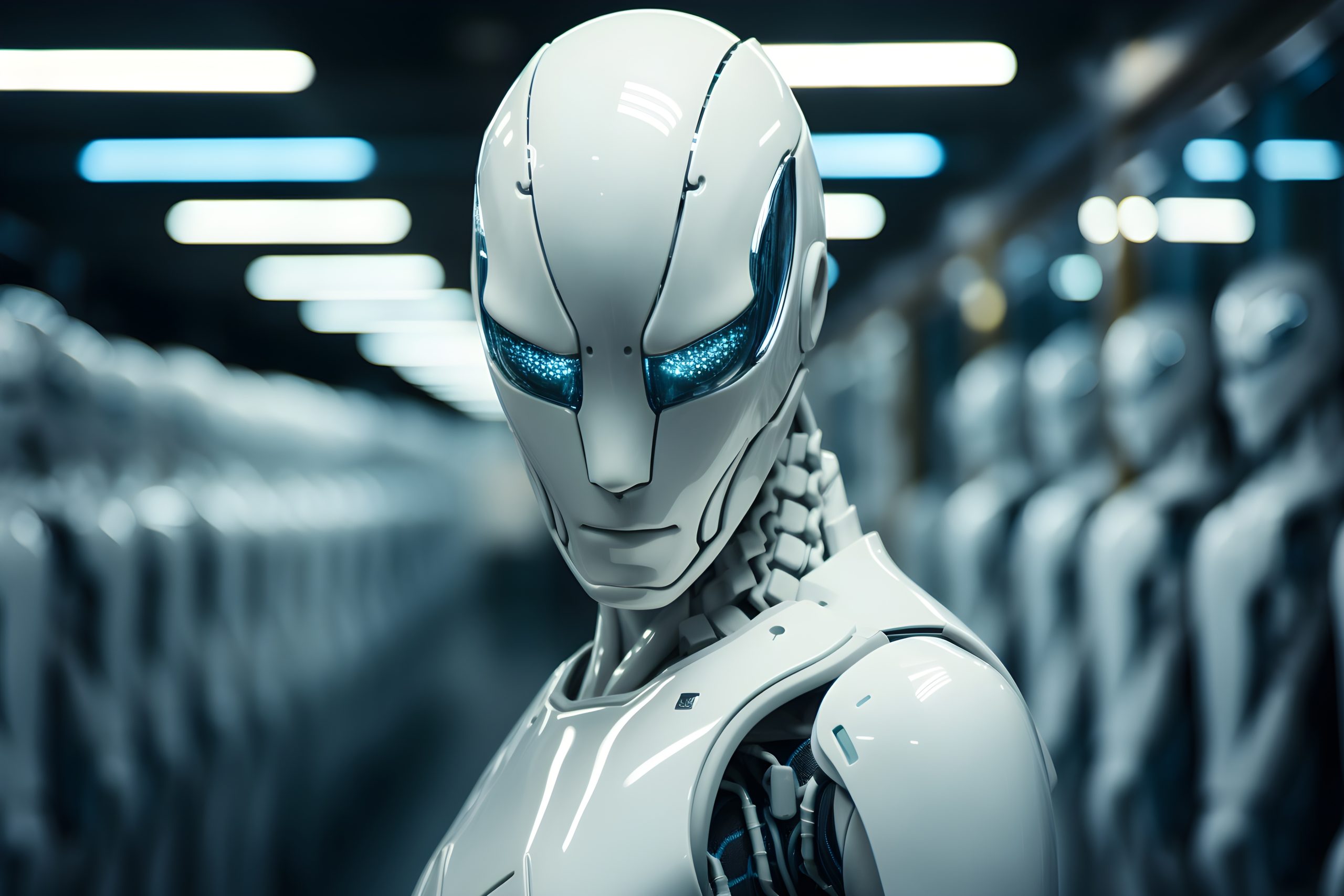Discover How AI is Revolutionizing Industries
Transformative Power of AI in Business: 15 cases
Explore how artificial intelligence is reshaping the landscape of modern businesses, driving innovation, efficiency, and growth across various sectors.
Key Features of AI Technologies
Artificial Intelligence (AI) has emerged as a transformational force across industries, reshaping business models and operations. The potential for AI to revolutionize processes, enhance customer experiences, and drive innovation is immense. In this article, we explore fifteen real-world examples that demonstrate the impact of AI on businesses. Delve into the core capabilities of AI that are enabling businesses to thrive in a competitive environment.
Predictive Analytics
Utilize AI-driven insights to anticipate market trends and make informed business decisions.
Automated Processes
Streamline operations with AI to reduce manual tasks and increase productivity.
Enhanced Customer Experience
Leverage AI to personalize interactions and improve customer satisfaction.
Data Security
Implement AI solutions to safeguard sensitive information and ensure compliance.
AI Transformation Case Studies
1. Enhanced Customer Service with Chatbots
Case: Bank of America and Their Virtual Assistant Erica
Bank of America introduced a chatbot named Erica to assist customers with various banking queries. This bot is capable of providing round-the-clock support, offering immediate answers to questions about account balances, recent transactions, and helping manage loans and accounts.
Erica utilizes machine learning and natural language processing (NLP) technologies to understand customer requests and provide accurate and useful responses. By doing so, customers can quickly obtain necessary information without having to wait for an operator from the call center. This not only increases customer satisfaction but also reduces the workload on the bank’s support team.
2. Predictive Maintenance in Manufacturing
Case: General Electric and Equipment Monitoring Systems
General Electric actively employs AI for predicting the technical condition of industrial equipment. Their Predix system analyzes sensor data installed on machinery to forecast potential malfunctions before they lead to production downtime.
This technology allows companies to plan maintenance proactively, minimize downtime, and cut repair costs. For instance, if the system detects abnormalities in turbine operation, it can alert engineers to perform preventive maintenance, thereby avoiding expensive emergency repairs.
3. Personalized Marketing Campaigns
Case: Amazon and Product Recommendations
Amazon is one of the leaders in using AI to personalize the user experience. The company collects vast amounts of data on customer behavior, including purchase history, product views, and reviews. These data are processed by machine learning algorithms that generate individual recommendations for each user.
When a customer visits the Amazon website, they see suggestions for products most likely to interest them based on previous interactions. This strategy significantly increases the likelihood of purchases and strengthens customer loyalty since users receive exactly the products they need.
4. Fraud Detection in Finance
Case: JPMorgan Chase and Financial Crime Prevention
JPMorgan Chase uses AI to detect suspicious financial transactions in real-time. The transaction analysis system can identify unusual behavioral patterns, such as unusual fund transfers or multiple attempts to access an account from different locations.
These algorithms are trained on large volumes of historical data and can quickly respond to potential threats. If suspicious activity is detected, the system alerts security personnel who carry out additional checks. This approach enables the bank to prevent financial losses and protect its clients’ interests.
5. Autonomous Vehicles in Logistics
Case: Uber Freight and Autonomous Trucks
Uber Freight is actively exploring the use of autonomous vehicles for transporting goods over long distances. Autonomous trucks are equipped with numerous sensors and cameras that allow them to navigate roads and avoid collisions.
Using these technologies promises substantial cost reductions in delivery, improved road safety, and shorter delivery times. Additionally, autonomous trucks can operate around the clock, which is particularly important for companies involved in long-distance shipping.
6. Optimized Supply Chain Management
Case: Walmart and Inventory Control
Walmart uses AI to optimize its supply chain, starting from demand forecasting to inventory management. Machine learning algorithms analyze historical sales data, weather conditions, seasonal trends, and other factors to accurately predict product demand.
Based on these forecasts, the company optimizes warehouse inventories, avoiding both excess and shortages of products. This allows Walmart to manage its resources efficiently, reduce storage costs, and ensure constant availability of essential items on store shelves.
7. Smart Energy Management
Case: Enel and Intelligent Energy Grids
Energy giant Enel implements AI to manage energy systems more efficiently. Using big data and machine learning technologies, the company analyzes energy consumption in real-time and adapts electricity generation to current needs.
This enables balancing supply and demand, minimizing energy loss, and integrating renewable energy sources smoothly into the grid. As a result, the company improves the efficiency of its energy system and reduces carbon dioxide emissions.
8. Disease Diagnosis and Treatment in Healthcare
Case: IBM Watson Health and Doctor Support
IBM Watson Health provides doctors with AI-based tools that aid in disease diagnosis and optimal treatment selection. The system analyzes patients’ medical records, test results, and extensive databases of medical literature.
Based on this analysis, Watson suggests diagnostic options and treatments to physicians, drawing on best practices and clinical guidelines. This accelerates decision-making and improves diagnostic accuracy, leading to higher-quality medical care.
9. Automating Recruitment Processes
Case: Unilever and Automated Hiring
Unilever uses AI to automate candidate screening for job vacancies. The system analyzes resumes, conducts initial video interviews, and matches applicants’ skills with job requirements.
This approach allows the company to handle a large number of applications simultaneously, reducing hiring time and ensuring objective evaluation. Candidates undergo automated pre-screening, after which top contenders proceed to the next stage of interviews with actual HR staff members.
10. Dynamic Pricing Strategies
Case: Expedia and Flexible Pricing Policies
Expedia, one of the largest online travel booking platforms, uses AI for dynamic pricing adjustments for flights, hotels, and car rentals. The algorithm considers many factors, such as current demand, competition, seasonality, and even destination weather.
Thanks to this approach, prices are constantly adjusted, allowing Expedia to maximize profits and remain competitive in the market. Customers benefit from being able to book trips at optimal prices according to the current market situation.
11. Virtual Assistants for Enhancing Productivity
Case: Microsoft Cortana and Task Automation
Cortana, Microsoft’s virtual assistant, helps employees manage their time and tasks. It can remind them of meetings, assist with scheduling, send emails, and perform other routine duties.
Using such tools frees up employee time for more critical and creative tasks, enhancing overall team productivity. Moreover, Cortana’s integration with other Microsoft Office applications makes work even more convenient and efficient.
12. Cyberthreat Protection
Case: Darktrace and Real-Time Network Defense
Darktrace uses AI to safeguard corporate networks against cyberattacks. The system is trained to recognize normal network activity and react instantly to any deviations that might indicate a threat.
Darktrace’s algorithms can detect attacks that traditional antivirus software could miss, such as sophisticated phishing schemes or hidden malware. This enables companies to respond promptly to threats and minimize potential damage from possible attacks.
13. Intelligent Agriculture
Case: John Deere and Autonomous Farm Machinery
John Deere integrates AI into agricultural machinery, such as tractors and drones. Autonomous tractors, equipped with cameras and sensors, can independently perform various field operations, such as sowing, harvesting, and soil cultivation.
Drones with computer vision are used to monitor plant health, determine soil moisture levels, and identify crop diseases. This allows farmers to make informed decisions regarding watering, fertilizing, and other agronomic measures, resulting in increased yield and reduced costs.
14. Content Creation and Curation
Case: BuzzFeed and Personalized News Feeds
BuzzFeed uses AI to create and distribute content tailored to audience interests. Algorithms analyze user behavior, preferences, and reactions to past articles to suggest new materials that would be engaging to specific individuals.
Additionally, BuzzFeed creates content using AI, such as article headlines or short videos. This allows the company to adapt quickly to changes in audience preferences and maintain high reader engagement.
15. Legal Document Analysis
Case: Kira Systems and Automatic Key Clause Identification
Kira Systems is a platform that uses AI to automatically analyze legal documents. The system scans contracts, finds key points such as deadlines, obligations, and penalties, and highlights them for lawyers.
This approach significantly saves experts’ time, enabling them to focus on more complex aspects of legal review. It’s especially beneficial when dealing with a large volume of contracts where manual searches for pertinent provisions can be time-consuming and prone to human error.
Conclusion
These fifteen cases illustrate how AI is transforming various aspects of business operations, from customer service to supply chain management and beyond. As technology continues to evolve, we can expect even more innovative applications of AI that will further reshape the business landscape. Embracing AI not only drives efficiency but also opens new opportunities for growth and competitive advantage.


